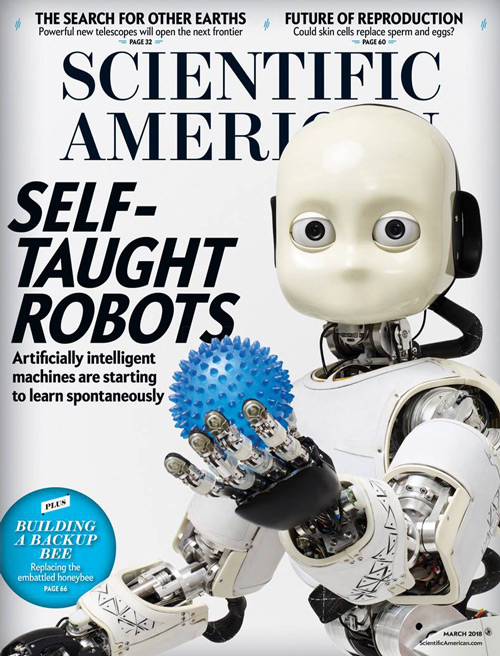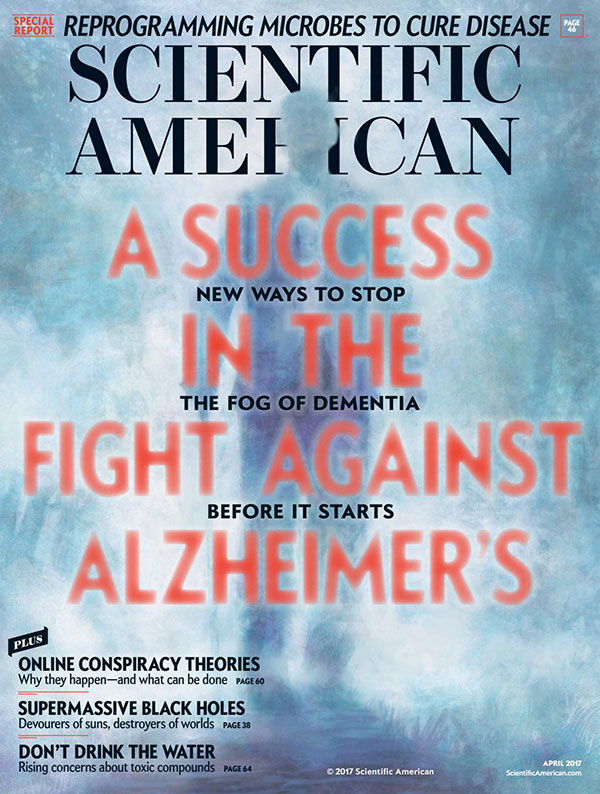Are we living in a post-truth world?
In 2005 the American Dialect Society’s word of the year was “truthiness,” popularized by Stephen Colbert on his news show satire The Colbert Report, meaning “the truth we want to exist.” In 2016 the Oxford Dictionaries nominated as its word of the year “post-truth,” which it characterized as “relating to or denoting circumstances in which objective facts are less influential in shaping public opinion than appeals to emotion and personal belief.” In 2017 “fake news” increased in usage by 365 percent, earning the top spot on the “word of the year shortlist” of the Collins English Dictionary, which defined it as “false, often sensational, information disseminated under the guise of news reporting.”
Are we living in a post-truth world of truthiness, fake news and alternative facts? Has all the progress we have made since the scientific revolution in understanding the world and ourselves been obliterated by a fusillade of social media postings and tweets? No. As Harvard University psychologist Steven Pinker observes in his resplendent new book Enlightenment Now: The Case for Reason, Science, Humanism, and Progress (Viking, 2018), “mendacity, truth-shading, conspiracy theories, extraordinary popular delusions, and the madness of crowds are as old as our species, but so is the conviction that some ideas are right and others are wrong.”
Even as pundits pronounced the end of veracity and politicians played loose with the truth, the competitive marketplace of ideas stepped up with a new tool of the Internet age: real-time fact-checking. As politicos spin-doctored reality in speeches, factcheckers at Snopes.com, FactCheck.org, and OpenSecrets.org rated them on their verisimilitude, with PolitiFact.com waggishly ranking statements as True, Mostly True, Half True, Mostly False, False, and Pants on Fire. Political fact-checking has even become clickbait (runner-up for the Oxford Dictionaries’ 2014 word of the year), as PolitiFact’s editor Angie Drobnic Holan explained in a 2015 article: “Journalists regularly tell me their media organizations have started highlighting fact-checking in their reporting because so many people click on fact-checking stories after a debate or high-profile news event.” (continue reading…)
read or write comments (9)
How to think about claims, even the Resurrection
According to the Oxford English Dictionary’ s first definition, a “skeptic” is “one who holds that there are no adequate grounds for certainty as to the truth of any proposition whatever.” This is too nihilistic. There are many propositions for which we have adequate grounds for certainty as to their truth:
There are 84 pages in this issue of Scientific American. True by observation.
Dinosaurs went extinct around 65 million years ago. True by verification and replication of radiometric dating techniques for volcanic eruptions above and below dinosaur fossils.
The universe began with a big bang. True by a convergence of evidence from a wide range of phenomena, such as the cosmic microwave background, the abundance of light elements (such as hydrogen and helium), the distribution of galaxies, the large-scale structure of the cosmos, the redshift of most galaxies and the expansion of space.
These propositions are “true” in the sense that the evidence is so substantial that it would be unreasonable to withhold one’s provisional assent. It is not impossible that the dinosaurs died a few thousand years ago (with the universe itself having been created 10,000 years ago), as Young Earth creationists believe, but it is so unlikely we need not waste our time considering it. (continue reading…)
read or write comments (27)
Do we perceive reality as it is?
One of the deepest problems in epistemology is how we know the nature of reality. Over the millennia philosophers have offered many theories, from solipsism (only one’s mind is known to exist) to the theory that natural selection shaped our senses to give us an accurate, or veridical, model of the world. Now a new theory by University of California, Irvine, cognitive scientist Donald Hoffman is garnering attention. (Google his scholarly papers and TED talk with more than 1.4 million views.) Grounded in evolutionary psychology, it is called the Interface Theory of Perception (ITP) and argues that percepts act as a species-specific user interface that directs behavior toward survival and reproduction, not truth.
Hoffman’s computer analogy is that physical space is like the desktop and that objects in it are like desktop icons, which are produced by the graphical user interface (GUI). Our senses, he says, form a biological user interface—a gooey GUI—between our brain and the outside world, transducing physical stimuli such as photons of light into neural impulses processed by the visual cortex as things in the environment. GUIs are useful because you don’t need to know what is inside computers and brains. You just need to know how to interact with the interface well enough to accomplish your task. Adaptive function, not veridical perception, is what is important. (continue reading…)
read or write comments (15)




